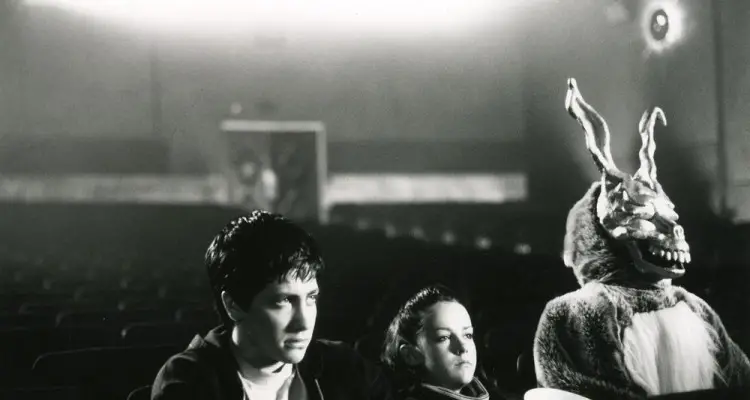What Do You Prefer: Happy or Dark Endings?

Manon de Reeper is the founder and CEO of Film…
Movies are a great remedy to our own worldly problems. Temporarily, you get sucked into a story full of huge problems: you don’t have to bother with your own for a moment, and because of the world-impacting problems the movies deal with, your own seem a lot less significant, too. Movies can be soothing, numbing, even addictive: just like getting drunk.
Happy, Dark and Neutral Endings
Often, movies have a happy ending. The issue the story presented is resolved – everyone lives happily ever after. The happy endings are supposed to make you feel good as well, and not just about the movie you just saw; you also feel better about the world. No matter how rough your problem is, or how incredibly daunting, there’s always a solution and the problem can always be resolved.

On the other hand, there are the movies with dark endings. The problems aren’t resolved, the world isn’t going to be saved or the main character died (or a combination of these three) – the ending is disturbing, bleak and/or depressing. They don’t leave you with a happy feeling when you exit the cinema or turn off the TV, and probably, you will mull over the ending endlessly (and cost you sleep, too).
There are also movies that have a neutral ending. These endings are often open and it’s unclear whether the main problem is actually resolved; you, the spectator, are left to ponder on it. Blade Runner is an excellent example of a movie with a neutral ending – if you take the Director’s Cut, that is. While it appears like the movie’s main issue was resolved (evil Nexus Androids are done away with), we’re never sure whether Deckard is a Replicant himself, and whether that’s a good or bad thing.
What Do I Prefer
I personally prefer the movies with a neutral or dark ending. I even often dislike movies with a happy ending because they don’t have a dark ending. I think the movies with a dark or neutral ending often show a more realistic image of the world – or, perhaps an image of the world that resonates more with me, personally.
I definitely do consider movies with a dark ending to be better. I appreciate the guts of a writer or director more when they don’t go about satisfying the audience’s almost pathological need for happy endings; after all, most mainstream movies have happy endings. I hate it when a movie or TV show fails to kill a character, just because they are “good” characters. Even the good guys die in real life, it just happens.

MAJOR SPOILER FOR GRAVITY AND DALLAS BUYERS CLUB IF YOU HAVEN’T SEEN THEM YET LOOK AWAY NOW I think Gravity would have been better if she’d died. Like the rest of the audience, I sighed a happy relieved sigh when she stood up on the shore (so lucky she crashed near land, too, right?!), I can’t deny it. But still, to me, it would have been better, more realistic, if she hadn’t made it. The same counts for Dallas Buyers Club, actually – him being heralded as a hero in the gay community for his drug dealing and riding the bull in the end was too happy if you consider the dark tone of the rest of the movie; it warranted a darker ending.
The same counts for The Walking Dead, where the creators so desperately hold on the characters they know, while they make one stupid mistake after another, which all should have killed them. Or what about Dexter, ANOTHER MAJOR SPOILER LOOK AWAY NOW I really needed a dark ending for Dexter. The show became too happy goody, and Dexter either needed to die, or even better, needed to be arrested. You can imagine I was happier with Breaking Bad‘s ending.
Maybe I’m a bit of a masochist – I can’t enjoy happy endings, even if they’re well constructed. The thing is, to me, a happy ending means the resolution is final. Sure, we can think about what happened during the movie that led up to the good ending, but I miss the philosophizing about what may have happened to the characters after an open, neutral ending. Nor can I daydream about what elements of the movie foreshadowed on the dark ending.

Then again, I also hated that the Beast turned into the Prince again, in Beauty in the Beast, when I was little – I may just have a very black heart.
What do you prefer?
The above is my personal opinion and you are free to disagree with me and tell me. I’m curious: do you feel as strongly about endings as I do? What is your personal preference, and why?
Which are your favorite movies with happy endings, which with dark? Can you name more movies with neutral endings?
Share how you feel about the endings in the comments below!
Enjoyed this article? Please share it on your social networks, so we can chat about endings with more people ^_^
Does content like this matter to you?
Become a Member and support film journalism. Unlock access to all of Film Inquiry`s great articles. Join a community of like-minded readers who are passionate about cinema - get access to our private members Network, give back to independent filmmakers, and more.
Manon de Reeper is the founder and CEO of Film Inquiry, and a screenwriter/producer. Her directorial debut, a horror short film, is forthcoming in 2021.













